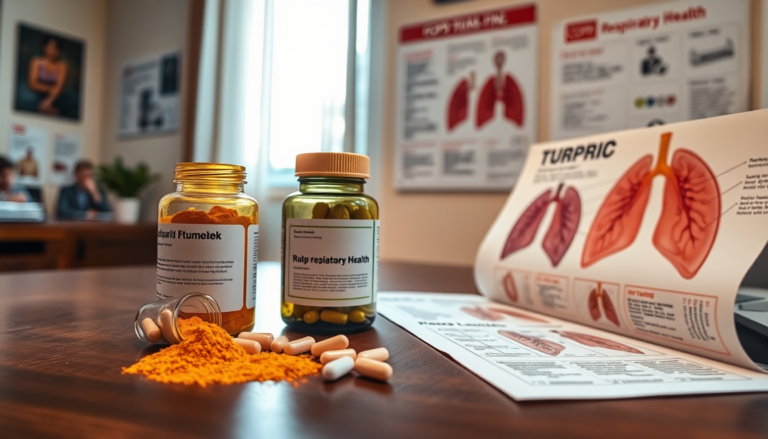Learn about the implications of combining blood thinners with turmeric and the impact of lung reduction surgery.

Topics covered
Managing chronic health issues can be a daunting task, especially when navigating medications and treatment options. Recently, a patient raised a crucial question about the combination of blood thinners and turmeric, as well as the potential benefits of lung reduction surgery for those with chronic obstructive pulmonary disease (COPD).
These topics highlight the complexities of medical treatments and the importance of informed decision-making.
The role of blood thinners in atrial fibrillation
Atrial fibrillation is no small concern. This heart rhythm disorder causes the upper chambers of the heart to quiver rather than contract effectively.
As a result, blood can pool in those chambers, creating a perfect storm for clot formation. These clots pose a severe risk: if they break loose, they can travel to the brain or other vital organs, leading to life-altering conditions such as strokes or heart attacks.
In this context, blood thinners become essential. The patient in question has been prescribed edoxaban, a member of the direct oral anticoagulants (DOACs) family. Unlike warfarin, which requires constant monitoring of vitamin K levels, DOACs allow for a more straightforward treatment approach. Patients appreciate the convenience of not needing regular blood tests, but there’s a catch.
Combining edoxaban with turmeric, a popular natural remedy for inflammation and pain relief, raises a red flag. Turmeric contains curcumin, which can interfere with clotting factors in the blood. While it may seem harmless, its effects can mimic those of low-dose aspirin—potentially increasing the risk of bleeding. This makes it vital to heed medical advice against mixing these two.
Lung reduction surgery: a ray of hope for COPD patients
On another front, a 74-year-old patient with COPD faces a different challenge. After 15 years of battling this debilitating condition, a consultant has suggested lung volume reduction surgery (LVR). But what does this entail? COPD, particularly emphysema, is characterized by the destruction of lung tissue, resulting in trapped air and difficulty breathing.
LVR aims to remove damaged lung tissue, allowing healthier areas to expand and function properly. This can lead to significant improvements in breathing and overall quality of life. However, not everyone is a candidate. The surgery is ideal for patients with localized emphysema, where specific lobes of the lung are affected. If the damage is widespread, the procedure may not yield the desired results.
For those who qualify, the prospect of surgery can be daunting, yet the potential benefits are considerable. Many patients report a renewed ability to breathe freely and engage in daily activities post-surgery, transforming their lives in ways they never thought possible.
Weight loss medications and their overlooked benefits
Shifting gears, the conversation around weight loss medications like Wegovy and Mounjaro is heating up. These drugs have gained attention for their role in combating obesity, but there’s more to the story. Beyond regulating blood sugar and curbing appetite, recent studies suggest they may help reduce liver fat and inflammation—offering significant benefits for individuals with metabolic dysfunction-associated steatohepatitis (MASH).
The implications are profound. Given the alarming rates of obesity and its associated health risks, including liver disease, making these medications more accessible could be a game changer for many. Currently, around one in five people in the UK are living with fatty liver, often unaware of the dangers lurking beneath the surface.
While the self-injected drugs come with potential side effects such as nausea, the larger issue at hand is the strain of obesity on healthcare systems. If these medications can provide relief and prevent severe complications, it stands to reason that they should be considered more seriously in treatment plans.
As we analyze these medical dilemmas, one thing remains clear: the importance of informed choices in managing health cannot be overstated. Whether it’s understanding the interactions of prescribed medications or weighing the risks and benefits of surgical options, patients must advocate for themselves. The journey through health challenges is complex, but knowledge empowers action.




